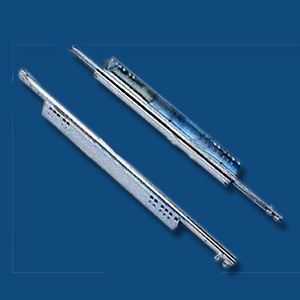Smart Glass,Architecture Glass,Switchable Privacy Glass,Smart Automobile Glass Shenzhen Filmbase Technology Co., Ltd. , https://www.globalfilmbase.com China has emerged as one of the world’s leading manufacturers in the hardware industry, driven by a massive domestic market and growing consumer demand. Over 70% of the country's hardware businesses are privately owned, making them the backbone of the sector’s rapid development. As production technologies advance and labor costs rise in developed economies, many European and American companies are shifting their high-value manufacturing to developing nations, with China playing a central role in this global transformation.
China now offers a wide range of hardware products known for their high quality and competitive pricing. Through years of building a strong reputation, excellent customer service, and an extensive sales network, Chinese hardware has expanded into various regions including Southeast Asia, the Middle East, Africa, and Latin America. Some of these products have reached or even matched international standards, challenging the dominance of imported goods and promoting healthy competition within the domestic market.
The hardware tools industry is traditionally labor-intensive, and Yongkang, often referred to as the "Hometown of Hardware," has become a hub for low-cost, traditional competitive advantages. The Yongkang hardware market features 16 specialized trading areas, offering tens of thousands of products such as daily-use hardware, construction tools, mechanical equipment, and more. These goods are exported across China, Russia, the U.S., Canada, Brazil, Australia, Japan, and over 50 other countries. By 2002, the market had achieved turnover figures of 12.6 billion, 15.13 billion, and 19.2 billion yuan respectively. This growth has not only boosted the local economy but also helped establish Yongkang as a key player in the global hardware industry.
Since the start of the 21st century, the acceleration of China’s industrial modernization has pushed the hardware tool sector toward greater innovation and efficiency. Industry experts believe that without clear strategies, inconsistencies in product differentiation could slow down the sector’s progress. The rise of large-scale enterprises is seen as a natural outcome of market dynamics and industrial evolution.
In 2013, early signs of a new competitive landscape began to emerge. Within five years, the structure of the Chinese hardware tool market became more defined, with opportunities becoming more balanced. In this environment, only the strongest players—those who are big, fast, and efficient—would survive. Brand competition in the hardware industry is intense, with long-standing rivalries like that between Shida and Stanley having shaped the market for over a decade. Their marketing strategies have significantly influenced both Chinese consumers and local manufacturers, especially in terms of brand positioning and customer value.
Currently, Shida and Stanley still hold dominant positions in the high-end segment, but other brands remain active, presenting plenty of room for growth. Luo Baihui, Chief Brand Officer at Golden Model Power Grid, emphasized that successful brand marketing lies in creating a unique identity and transforming brand value into customer trust and profitability. As the market continues to evolve, capturing this moment of change and aiming for top-tier brand status will be crucial for future development.
China has emerged as one of the world’s leading manufacturers in the hardware industry, driven by a massive domestic market and growing consumer demand. Over 70% of the country's hardware businesses are privately owned, making them the backbone of the sector’s rapid development. As production technologies advance and labor costs rise in developed economies, many European and American companies are shifting their high-value manufacturing to developing nations, with China playing a central role in this global transformation.
China now offers a wide range of hardware products known for their high quality and competitive pricing. Through years of building a strong reputation, excellent customer service, and an extensive sales network, Chinese hardware has expanded into various regions including Southeast Asia, the Middle East, Africa, and Latin America. Some of these products have reached or even matched international standards, challenging the dominance of imported goods and promoting healthy competition within the domestic market.
The hardware tools industry is traditionally labor-intensive, and Yongkang, often referred to as the "Hometown of Hardware," has become a hub for low-cost, traditional competitive advantages. The Yongkang hardware market features 16 specialized trading areas, offering tens of thousands of products such as daily-use hardware, construction tools, mechanical equipment, and more. These goods are exported across China, Russia, the U.S., Canada, Brazil, Australia, Japan, and over 50 other countries. By 2002, the market had achieved turnover figures of 12.6 billion, 15.13 billion, and 19.2 billion yuan respectively. This growth has not only boosted the local economy but also helped establish Yongkang as a key player in the global hardware industry.
Since the start of the 21st century, the acceleration of China’s industrial modernization has pushed the hardware tool sector toward greater innovation and efficiency. Industry experts believe that without clear strategies, inconsistencies in product differentiation could slow down the sector’s progress. The rise of large-scale enterprises is seen as a natural outcome of market dynamics and industrial evolution.
In 2013, early signs of a new competitive landscape began to emerge. Within five years, the structure of the Chinese hardware tool market became more defined, with opportunities becoming more balanced. In this environment, only the strongest players—those who are big, fast, and efficient—would survive. Brand competition in the hardware industry is intense, with long-standing rivalries like that between Shida and Stanley having shaped the market for over a decade. Their marketing strategies have significantly influenced both Chinese consumers and local manufacturers, especially in terms of brand positioning and customer value.
Currently, Shida and Stanley still hold dominant positions in the high-end segment, but other brands remain active, presenting plenty of room for growth. Luo Baihui, Chief Brand Officer at Golden Model Power Grid, emphasized that successful brand marketing lies in creating a unique identity and transforming brand value into customer trust and profitability. As the market continues to evolve, capturing this moment of change and aiming for top-tier brand status will be crucial for future development.